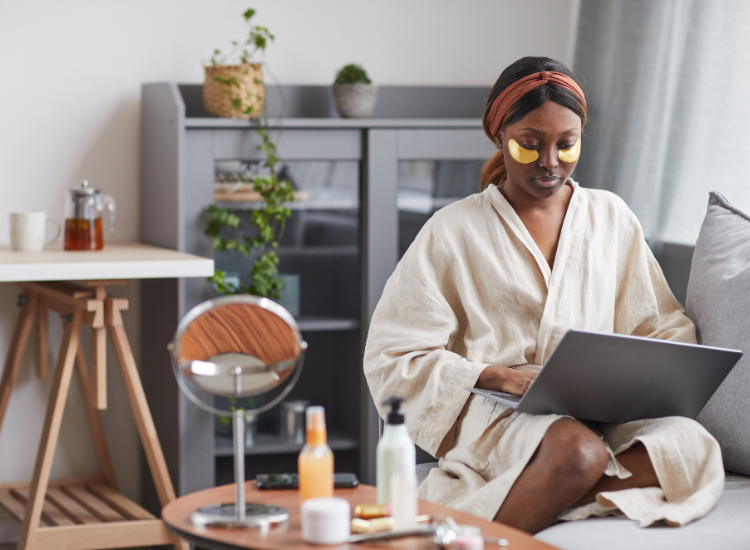A Comprehensive Self-Care Guide for Busy Professionals
Prioritizing yourself isn’t indulgent—it’s a necessity, a non-negotiable part of maintaining equilibrium in your professional and personal lives.
Prioritizing yourself isn’t indulgent—it’s a necessity, a non-negotiable part of maintaining equilibrium in your professional and personal lives.

As a busy professional, you’re no stranger to packed schedules, back-to-back meetings, and never-ending to-do lists. It might often feel like there’s no time left for you.
But wait—a consistent self-care routine is not only deserved but fundamental for long-term productivity and wellness. In this guide, we explore ways even the busiest professionals can recharge and make self-care an integral component of a successful career.
Prioritizing yourself isn’t indulgent—it’s a necessity, a non-negotiable part of maintaining equilibrium in your professional and personal lives.
“Self-care is a necessity, not an indulgence. We need to give to ourselves first before we can give out to others.” — Lailah Gifty Akita
First, let’s address the elephant in the room: stress. It’s no secret that a demanding workload can have a significant impact on your mental and physical wellbeing. But fear not, there are strategies to help you cope.
Simple breathing exercises, for instance, can be extremely beneficial. These exercises involve inhaling deeply, holding your breath for a few seconds and then slowly exhaling. You can easily incorporate these breath exercises into your daily routine, perhaps as a calming way to start your morning, or a method to decompress in your evening wind-down.
Did you know nourishment plays a crucial role in your energy levels and overall wellness? Indeed, an oft-overlooked aspect of self-care for busy professionals is the fuel we put into our bodies. Making time for balanced, wholesome meals is not just crucial for physical health – it can boost your mood and cognitive function as well.
Working long hours doesn’t mean your physical activity has to take a backseat. There are oh-so-many ways to integrate movement into your daily routine. From taking the stairs instead of the elevator, opting for a walking meeting or even doing some simple stretches at your desk. A little can go a long way towards improving your energy levels and reducing stress.
Last but not least, rest! Contrary to what some may think, taking a break is not a sign of weakness or lack of commitment. Rest is essential for our bodies and minds to recharge and should not be overlooked. Whether it’s ensuring you get a good night’s sleep, taking short breaks throughout the day, or taking some time off work when you need it, these elements play a vital role in maintaining balance and preventing burnout.
Self-care isn’t about dramatic lifestyle changes. It’s about integrating small, manageable habits into your daily routine and, over time, these can significantly improve your work-life balance. Remember, the care you give to yourself is the care you bring to your work.
As a diligent professional, you’re often expected to manage multiple tasks, handle intense pressure, and meet tight deadlines.
You might sometimes feel that there isn’t enough time in a day to pause and breathe. However, self-care is equally important as it directly influences your productivity, mindset, and overall well-being.

Self-care refers to the conscious actions you take to promote your own physical, mental, and emotional health. It’s all about taking the time to put yourself first, even in the midst of a busy schedule.
The importance of self-care cannot be overstated. Without self-care, your ability to perform efficiently and effectively may deteriorate over time, leading to burnout, reduced mental agility, and even health problems. Conversely, regular self-care can boost your energy levels, enhance your resilience, and increase your overall happiness.
Tailor your self-care routine to suit your unique needs and preferences. The key is to create a sustainable routine that genuinely makes you feel good and recharged. In the end, remember to be kind to yourself; self-care isn’t selfish or indulgent—it’s a necessary part of a balanced, happy life.
Decompressing after a long day of work is an essential part of self-care for busy professionals. This period allows the mind and body to transition from work mode to a more relaxed state, thus reducing stress levels and promoting overall well-being. But just how long should this period be?

There’s not a one-size-fits-all answer to this. It varies based on your personal needs and the intensity of your workday.
However, most mental health experts recommend a minimum of 30 minutes to an hour.
During this time, you should be engaging in activities that help you relax and that you genuinely enjoy.
Here are some strategies you can try to decompress in an efficient and helpful way:
One common cause of low energy levels in busy professionals is chronic stress.
Busy professionals often have demanding work schedules and high levels of responsibility, which can lead to chronic stress.
“Taking care of yourself doesn’t mean me first, it means me too.” – L.R.Knost
In the hustle and bustle of a demanding professional life, self-care emerges as not just a luxury but a necessity. This comprehensive guide delves into the intricacies of maintaining well-being for busy professionals, emphasizing the importance of mindful practices in the face of stress and tight schedules.
From simple breathing exercises to mindful nourishment, the guide navigates through practical self-care tips tailored for those navigating hectic workdays. It encourages professionals to prioritize themselves without guilt, echoing the sentiment that self-care is not indulgent but an essential component of a balanced and happy life.

The Wellness Concierge offers access to vetted wellness services, destinations, and curated low-key luxury experiences – no matter where your journey may take you.